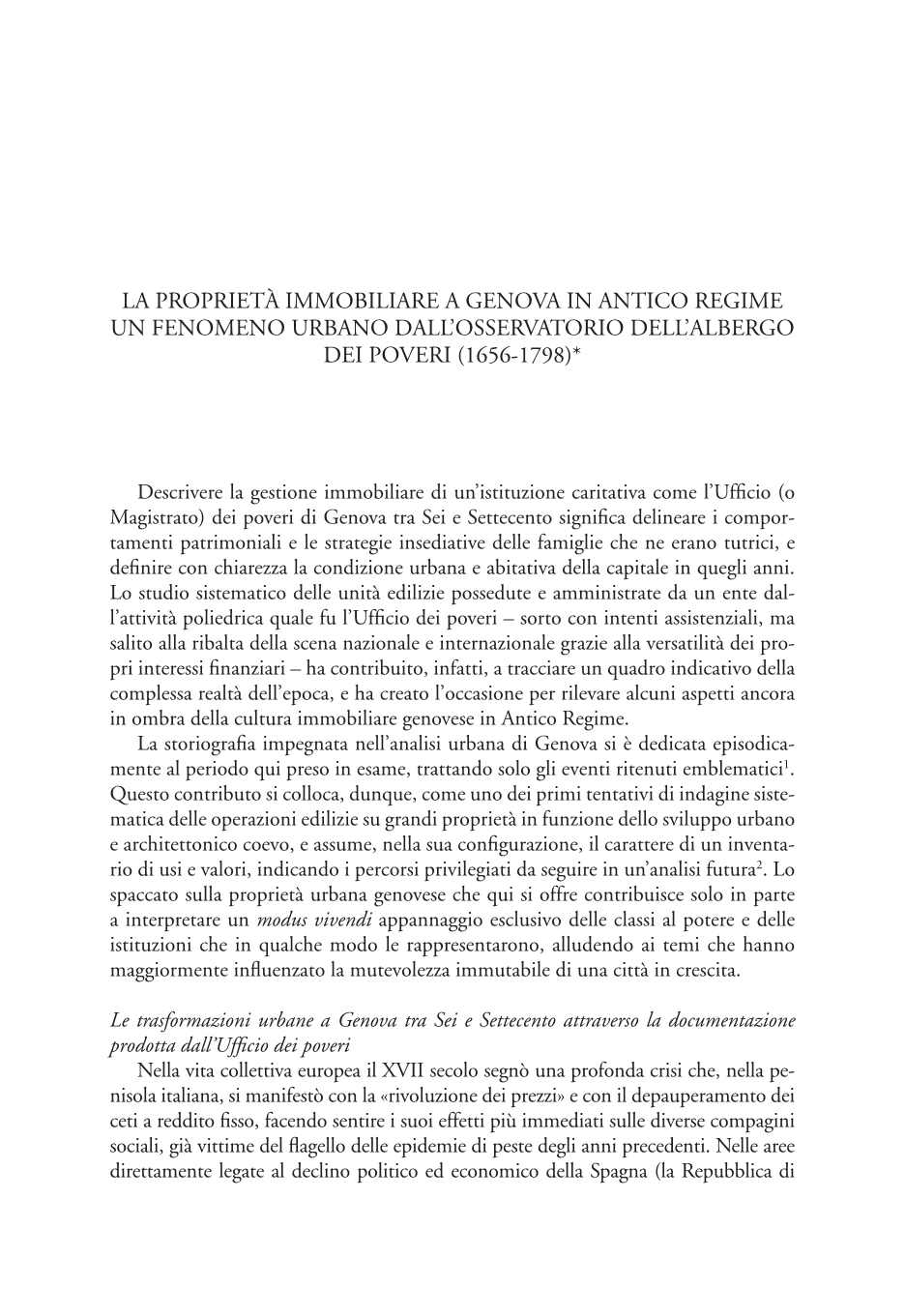Indice degli autori
CITTÀ & STORIA » 2006/1 » La cifra della città. Architetture ed economie in trasformazione
ISSN 1828-6364
Altavista Clara
La proprietà immobiliare a Genova in antico regime: un fenomeno urbano dall'osservatorio dell'Albergo dei poveri (1656-1798)
pp.115-132, DOI 10.17426/86012
Articoli
Abstract: This study of real estate property in Genoa, from the second half of the seventeenth to the end of the eighteenth century, deals with the real estate strategies of the those years in relation to the physical transformation of the city: a period of Genoa’s urban history which has received little attention in its overall characteristics. The varied strategies of the «Albergo dei poveri di Carbonara» aimed at the «petrifi cation» of the funds, made it possible to draw a convincing picture of what the city was like and in addition, to evaluate more clearly the real estate fortunes of a number of noble and bourgeois families, which had devolved a part of their wealth or their entire estates to the charitable organization. The modus operandi of the Institution and of the Genoese elites is outlined, including the factors behind it. One, connected with the «capital’s» contemporary and future transformations, was the topographical position of the various real estate properties. Another infl uencing element was each property’s «individual history», seen as the direct result of the modus vivendi of the families it was or had been associated with. Thus a factor strictly dependant on the tight links established over time by the ancient geography of the alberghi nobiliari, which had actively blocked Genoa’s urban development.

Referenze
- download: n.d.
- Url: http://archivio.centroricercheroma.it/?contenuto=indice-degli-autori&idarticolo=708
- DOI: 10.17426/86012
- citazione: C. Altavista, La proprietà immobiliare a Genova in antico regime: un fenomeno urbano dall'osservatorio dell'Albergo dei poveri (1656-1798), "Città & Storia", I/1, pp.115-132, DOI: 10.17426/86012

